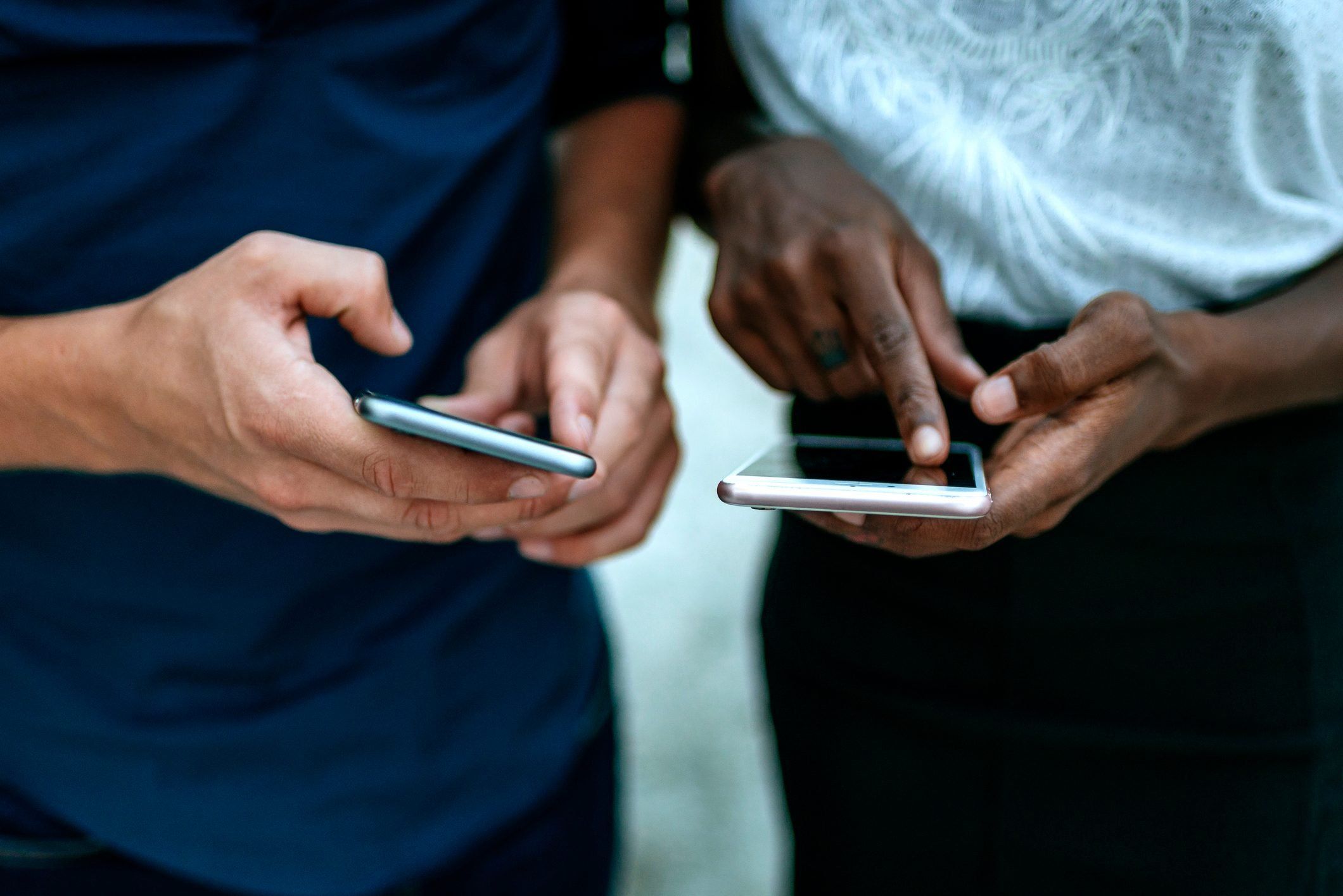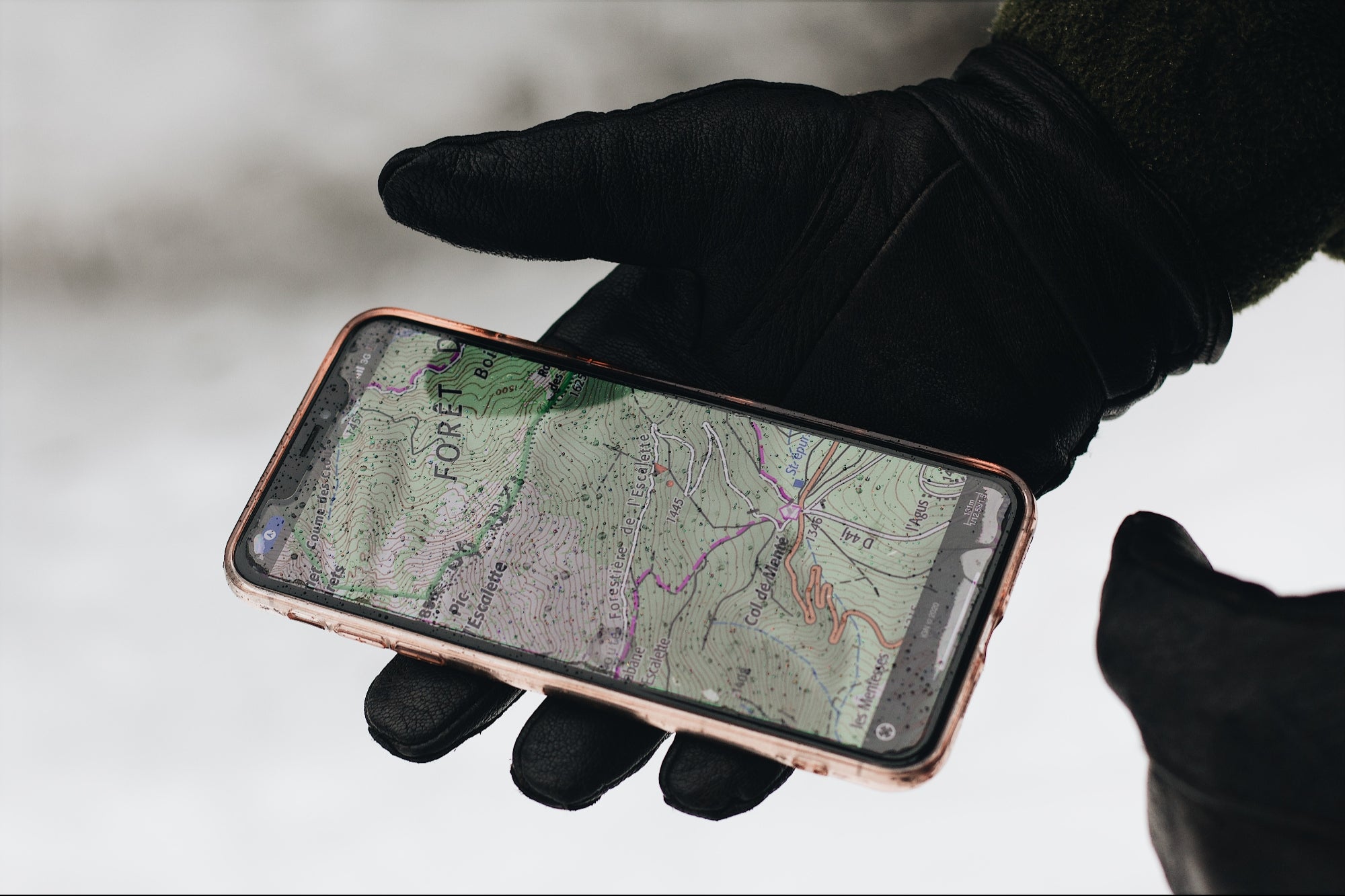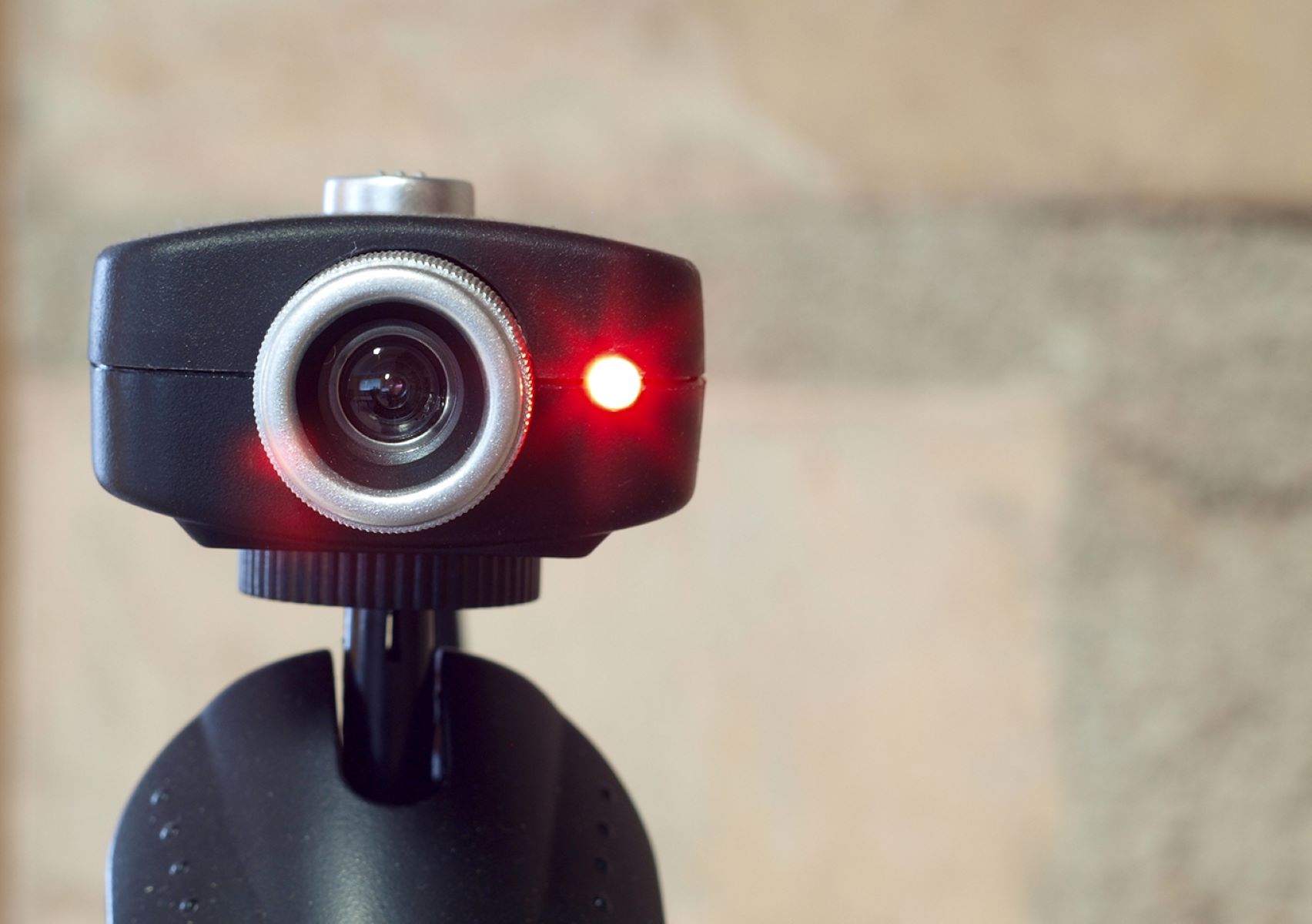Introduction
Welcome to our guide on how to block spy apps. In today’s digital age, our smartphones have become an extension of ourselves, containing a wealth of sensitive personal information. Unfortunately, there are individuals who seek to exploit this by using spy apps to invade our privacy and monitor our activities without consent.
Whether you suspect your phone is being spied on or simply want to take preventive measures, this article will provide you with valuable insights and practical tips to safeguard your privacy. We will explain what spy apps are, highlight the signs that your phone may be compromised, and discuss common features of these invasive applications.
Moreover, we will guide you through a step-by-step process to block spy apps effectively. This includes updating your phone’s operating system, being cautious of the apps you download, reviewing app permissions regularly, checking your apps and files, installing an anti-spyware app, using a strong PIN or password, and being aware of phishing attempts.
By following the steps outlined in this article, you will be able to protect your personal information, maintain your privacy, and confidently use your smartphone without worrying about unauthorized surveillance.
Understanding Spy Apps
Before we dive into the steps to block spy apps, let’s first understand what they are and how they can compromise your privacy. Spy apps, also known as surveillance or monitoring apps, are software programs or applications designed to covertly track and record the activities on a device without the user’s knowledge or consent.
These apps are typically installed on a smartphone or tablet, allowing an individual to remotely monitor various aspects of the device’s usage. Some spy apps can record phone calls, read text messages, track GPS locations, monitor social media activity, access browsing history, and even remotely activate the device’s microphone and camera.
What makes spy apps particularly concerning is that they can be incredibly stealthy, operating in the background without any visible signs to the user. In most cases, these apps are installed by someone with physical access to the device, such as a jealous partner, a suspicious employer, or even an unscrupulous individual who wants to obtain sensitive information for malicious purposes.
It is important to note that the use of spy apps without the consent of the device owner is illegal in many jurisdictions. However, these apps continue to pose a threat to privacy and security, and it is crucial to take precautions to protect yourself from unauthorized surveillance.
Next, let’s explore some common signs that may indicate your phone is being spied on. By familiarizing yourself with these indicators, you can take prompt action to block spy apps and secure your personal data.
Signs that Your Phone is Being Spied On
It can be alarming to think that someone may be spying on your smartphone without your knowledge. However, there are several signs that can indicate that your phone is being monitored. It’s important to pay attention to these signs and take immediate action if you suspect your privacy has been compromised.
One of the first signs to watch out for is a sudden decrease in battery life. Spy apps often run in the background, consuming significant system resources and draining your battery at a faster rate than usual. If you notice that your phone’s battery is depleting more quickly than normal, it could be a red flag.
Another common indication of spy app activity is an increase in data usage. Since these apps may transmit your data to a remote server, they can consume a significant amount of your mobile data. If you observe unexplained spikes in your data usage, despite not using your phone more than usual, it’s worth investigating further.
You may also notice strange behavior, such as unexpected phone restarts or shutdowns. Spy apps often run in the background and can interfere with your device’s normal functions, resulting in unusual crashes or restarts.
If you suspect that your phone is being spied on, be attentive to any strange noises during phone calls. Spy apps can sometimes activate the device’s microphone without your knowledge, leading to background noises or echoes during conversations.
Another telltale sign is a sluggish performance or unusual responsiveness. Spy apps can hog system resources, causing your phone to slow down or freeze. If you notice significant performance degradation or your phone is behaving erratically, it’s a good idea to investigate further.
Lastly, keep an eye out for unusual battery drain when your phone is in standby mode. Spy apps often require an active internet connection to transmit data, even when your phone is not in use. If you notice that your battery is being drained rapidly while your phone is idle, it may be a sign of spy app activity.
If you encounter any of these signs, it is important to take immediate action to protect your privacy. In the next section, we will discuss the common features of spy apps to help you further identify potential threats.
Common Features of Spy Apps
Spy apps come in various forms, but they typically share common features that allow them to monitor and track your device’s activities without your knowledge. By understanding these features, you can better identify and block potential spy apps.
One of the key features of spy apps is the ability to access and read your text messages. This includes both incoming and outgoing messages, as well as multimedia attachments. Spy apps can silently intercept and relay these messages to the person monitoring your device.
In addition to text messages, spy apps can also capture and record phone call information. This includes the time and date of calls, duration, and the phone numbers involved. Some advanced spy apps can even record the phone call conversations themselves.
Another common feature is GPS tracking. Spy apps can access your device’s location information in real-time, allowing the person spying on you to track your movements and view your location history. This can be particularly invasive and compromising to your privacy.
Spy apps may also have the ability to access your device’s browsing history and bookmarks. This means that the person monitoring your device can see the websites you visit, the searches you make, and even save certain web pages for later reference.
Furthermore, some spy apps have the capability to monitor your social media activity. They can access your Facebook, Instagram, Snapchat, and other social media accounts, allowing the person spying on you to see your posts, messages, and interactions.
Additionally, spy apps can remotely activate your device’s microphone and camera, allowing the eavesdropper to listen in on conversations or capture photos and videos without your knowledge. This ability to invade your privacy in such a surreptitious manner is one of the most concerning aspects of spy apps.
It is important to note that the features mentioned here are just a few examples. Spy apps can have additional functionalities that can further compromise your privacy and security.
By familiarizing yourself with these common features, you can better understand the potential threats posed by spy apps. In the next section, we will discuss the steps you can take to block and protect yourself from these invasive applications.
Steps to Block Spy Apps
Blocking spy apps and protecting your privacy is crucial in today’s digital landscape. By following these essential steps, you can mitigate the risk of your phone being compromised by invasive surveillance apps.
1. Update Your Phone’s Operating System: Keeping your operating system up to date is essential for security. Manufacturers release regular updates that include bug fixes and security patches to protect against vulnerabilities that spy apps may exploit. Make sure to regularly check for and install the latest updates.
2. Only Download Apps from Trusted Sources: Be cautious when downloading apps and only source them from reputable app stores such as Google Play Store or Apple App Store. These platforms have stringent security measures in place to detect and remove malicious apps.
3. Review App Permissions: When installing a new app, carefully review the permissions it requests. If a flashlight app, for example, asks for access to your microphone and contact list, it may be a red flag. Consider whether the app truly needs the requested permissions and be wary of apps with excessive or unnecessary access.
4. Regularly Check Your Apps and Files: Take the time to review the apps installed on your phone and delete any unfamiliar or suspicious ones. Similarly, scan your files for any unknown or potentially harmful files. Regularly cleaning out unnecessary apps and files can help eliminate potential security risks.
5. Install an Anti-Spyware App: Consider installing an anti-spyware app that can detect and remove spyware from your phone. These apps scan your device for any suspicious activity and provide an extra layer of protection against spy apps.
6. Use a Strong PIN or Password: Set a strong PIN or password to unlock your phone. Avoid easily guessable combinations like “1234” or “password.” A strong, unique passcode will make it harder for unauthorized individuals to access your device and install spy apps.
7. Be Aware of Phishing Attempts: Stay vigilant against phishing attempts, which can trick you into downloading malicious apps or clicking on harmful links. Avoid clicking on suspicious emails, texts, or pop-up ads, and always double-check the source before downloading or providing personal information.
By following these steps, you can significantly reduce the risk of spy apps invading your privacy and gaining unauthorized access to your personal information.
In the next section, we will provide additional tips to help you further protect your privacy and maintain a secure digital environment.
Update Your Phone’s Operating System
Updating your phone’s operating system (OS) is a crucial step in ensuring the security and privacy of your device. Manufacturers regularly release updates that include bug fixes, performance improvements, and most importantly, security patches to address vulnerabilities that can be exploited by spy apps and other malicious software.
Here are some important reasons why you should prioritize updating your phone’s OS:
1. Security Patches: OS updates often include security patches that fix known vulnerabilities. These vulnerabilities, if left unaddressed, can be exploited by spy apps or hackers to gain unauthorized access to your device and personal information. By keeping your OS up to date, you ensure that your phone has the latest security measures to protect against potential threats.
2. Bug Fixes: OS updates also include bug fixes that can improve the overall performance and stability of your device. Unfixed bugs can potentially be exploited by spy apps to gather information or disrupt the normal functioning of your phone. By staying updated, you minimize the risk of encountering these issues.
3. New Security Features: Manufacturers often introduce new security features with OS updates to enhance the device’s security capabilities. These features can include strengthened encryption, improved app permissions, and better protection against malware. By updating your OS, you can benefit from these additional security measures and further safeguard your device.
Now that you understand the importance of updating your phone’s OS, here’s how you can ensure that you stay up to date:
1. Enable Automatic Updates: Most smartphones allow you to enable automatic updates for your OS. This ensures that your device automatically downloads and installs the latest updates as they become available. Check your device’s settings to enable this feature and ensure that you receive timely updates without manual intervention.
2. Check for Updates Manually: If your device does not have automatic update settings or you prefer to have more control over the update process, you can manually check for updates. Go to your device’s settings, look for the “Software Update” or “System Update” option, and click on it to check for available updates. Follow the on-screen instructions to download and install any available updates.
3. Stay Connected: Make sure your device is connected to a stable internet connection to receive and download OS updates. Wi-Fi connections are often recommended for faster and more reliable downloads, especially for large OS updates.
By regularly updating your phone’s operating system, you ensure that your device has the latest security patches, bug fixes, and new security features. This helps protect your device from potential threats like spy apps and keeps your personal information secure.
In the next section, we will discuss the importance of downloading apps from trusted sources to further protect your device from spy apps.
Only Download Apps from Trusted Sources
When it comes to downloading apps for your smartphone, it’s crucial to exercise caution and only install them from trusted sources. The source of an app plays a significant role in determining its safety and security. By adhering to this practice, you can minimize the risk of downloading malicious apps, including spy apps, that may compromise your privacy and security.
Here are some reasons why it is important to only download apps from trusted sources:
1. Security and Reliability: Trusted app stores, such as Google Play Store for Android devices and Apple App Store for iOS devices, have robust security measures in place. They employ sophisticated scanning systems and strict app review processes to detect and remove malicious apps. Apps available in these stores undergo thorough scrutiny to ensure their security and reliability.
2. Early Detection of Malicious Apps: Trusted app stores have dedicated teams that continuously monitor and analyze apps for any suspicious activities or security breaches. In the event that a malicious app is detected, prompt action is taken to remove it from the store. This proactive approach helps protect users from potential harm.
3. Reduced Risk of Downloading Counterfeit Apps: By sticking to trusted sources, you decrease the likelihood of downloading counterfeit or modified versions of popular apps. Counterfeit apps often masquerade as legitimate applications but contain malicious code or spyware. These apps can silently collect your personal information and transmit it to unauthorized entities.
To ensure that you only download apps from trusted sources, here are some useful practices to follow:
1. Stick to Official App Stores: Use reputable app stores, such as Google Play Store or Apple App Store, to download apps for your respective operating systems. These official sources prioritize user safety and incorporate stringent measures to protect against malicious apps.
2. Avoid Third-Party App Stores: Third-party app stores may offer a wide variety of apps, including those not available on official stores. However, they lack the rigorous security checks and quality control measures implemented by trusted sources. It’s best to refrain from downloading apps from these platforms to avoid potential security risks.
3. Read App Reviews and Ratings: Before downloading an app, take the time to read its reviews and ratings. This feedback can provide valuable insights into the app’s performance, reliability, and security. Pay attention to any negative reviews that mention security concerns, suspicious activities, or privacy issues.
4. Check Developer Information: Verify the credibility of the app’s developer before downloading. Trusted developers often have a strong track record and a well-established presence in the app store. Research the developer’s website or online presence to gather more information about their reputation and the security measures they uphold.
By adhering to these practices and only downloading apps from trusted sources, you can significantly reduce the risk of downloading malicious apps, including spy apps. This helps protect your device, personal information, and overall digital security.
In the next section, we will discuss the importance of reviewing app permissions to further safeguard against spy apps.
Review App Permissions
When installing an app on your smartphone, it is important to review the permissions it requests. App permissions determine the access an app has to various features and data on your device. By reviewing and understanding these permissions, you can ensure that the app is not overstepping its boundaries and potentially compromising your privacy and security.
Here are some key reasons why reviewing app permissions is essential:
1. Limit Unnecessary Access: Reviewing app permissions allows you to identify and limit unnecessary access to sensitive information. Some apps may request access to your contacts, camera, microphone, location, and other personal data that may not be essential for their core functionality. By identifying these excessive permissions, you can be more cautious about granting access.
2. Protect Personal Information: Apps with excessive permissions may have the ability to collect and transmit your personal information to unknown entities. By carefully reviewing app permissions, you can ensure that your sensitive data remains protected.
3. Prevent Unauthorized Data Sharing: Some apps may request permission to share your data with third parties. By reviewing app permissions, you can prevent unauthorized data sharing and maintain control over your personal information.
Here are some steps to follow when reviewing app permissions:
1. Read Permission Requests: Take the time to read and understand the permission requests displayed when you install an app. Evaluate whether the requested permissions align with the app’s functionality and purpose. Question any permissions that seem excessive or unrelated to the app’s core features.
2. Consider App Functionality: Assess whether the requested permissions are justified based on the app’s functionality. For example, a photo editing app may necessitate access to your camera and photo gallery. Exercise caution if an app requests permission for features or data that seem unrelated to its primary purpose.
3. Check Permission Groups: Some app stores categorize permissions into groups, making it easier to understand the type of access an app is requesting. For example, Android devices categorize permissions into groups such as “location,” “camera,” “contacts,” etc. This grouping can help you quickly identify excessive permissions or potential privacy concerns.
4. Be Mindful of Updates: Keep in mind that app updates may introduce new permissions or modify existing ones. When updating an app, it’s a good practice to review the updated permissions to ensure they align with your privacy preferences.
Reviewing app permissions is an essential step in protecting your privacy and securing your personal information. By understanding the access an app has to your device and data, you can make informed decisions about granting permissions and safeguard your privacy.
In the next section, we will discuss the importance of regularly checking your apps and files to detect any potential spy apps or security breaches.
Regularly Check Your Apps and Files
Regularly checking your apps and files is an essential practice to maintain the security and privacy of your smartphone. By reviewing the apps installed on your device and scanning your files for potential threats, you can identify any suspicious activity, including the presence of spy apps, and take appropriate actions to protect your privacy.
Here are some key reasons why regularly checking your apps and files is important:
1. Detect Suspicious Apps: By reviewing the apps installed on your device, you can identify any unfamiliar or potentially malicious apps. Spy apps and other forms of malware often disguise themselves as legitimate apps to gain access to your personal information. Regularly checking your app list helps ensure that you only have trusted and authorized apps on your device.
2. Remove Unnecessary Apps: Over time, you may accumulate a variety of apps that you no longer use or need. Some of these apps may have permissions that can potentially compromise your privacy. By regularly deleting unnecessary apps, you reduce the potential risks associated with unused or untrusted applications.
3. Scan Files for Malware: Spy apps can disguise themselves as files, such as audio recordings, images, or documents. By scanning your files regularly using reliable antivirus software, you can detect any malware or spyware that may have been inadvertently downloaded or received.
Here are some steps to follow when checking your apps and files:
1. Review Your App List: Periodically review the list of installed apps on your device. Assess the apps individually and consider their functionality, permissions, and frequency of use. Uninstall any apps that you no longer need or that raise privacy concerns.
2. Check App Reviews and Ratings: Before installing a new app, read its reviews and ratings in the app store. Pay attention to any negative reviews that mention privacy or security concerns. This can provide you with insights regarding the app’s reputation and potential risks.
3. Use Antivirus Software: Install a reputable antivirus app or security software on your device. Regularly perform scans to detect and eliminate any malware or spyware that may be present in your files or apps. Make sure to keep the antivirus software updated for enhanced protection.
4. Be Cautious of Untrusted Sources: Be wary of downloading apps or files from untrusted sources, such as websites or links sent via email or messaging apps. Stick to official app stores or trusted websites to minimize the risk of inadvertently downloading harmful apps or files.
Regularly checking your apps and files is an important proactive measure to ensure the security and privacy of your smartphone. By maintaining an organized and well-reviewed app list and regularly scanning your files for potential threats, you can minimize the risk of spy apps and other security breaches affecting your device.
In the next section, we will discuss the importance of installing an anti-spyware app to further enhance your device’s security.
Install an Anti-Spyware App
Installing an anti-spyware app is a crucial step in safeguarding your smartphone against spy apps and other forms of malicious software. These apps are specifically designed to detect and remove spyware from your device, providing an additional layer of protection for your privacy and security.
Here are the key reasons why installing an anti-spyware app is important:
1. Spyware Detection: Anti-spyware apps have specialized scanning algorithms that can detect the presence of spy apps on your device. They can identify suspicious behaviors, hidden processes, and other indicators that suggest the presence of spyware. By regularly scanning your device, you can identify and remove any spy apps that may be compromising your privacy.
2. Real-Time Protection: Many anti-spyware apps offer real-time scanning and protection, continuously monitoring your device for any signs of spyware activity. This proactive approach ensures that you are alerted and protected against potential threats in real-time, minimizing the risk of any spyware going undetected.
3. Enhanced Privacy Controls: Some anti-spyware apps offer additional privacy features, such as privacy advisors and app-locking capabilities. These features provide you with greater control over your device’s privacy by alerting you to any apps that may have excessive permissions or accessing your personal information without your consent.
When choosing an anti-spyware app, consider the following:
1. Reputation and Reviews: Look for anti-spyware apps with a good reputation and positive user reviews. Research the developer’s credibility and the app’s track record in effectively detecting and removing spyware.
2. Features and Functionality: Evaluate the features offered by different anti-spyware apps. Consider which features are important to you, such as real-time protection, automatic scanning, or privacy controls, and choose an app that aligns with your needs.
3. Updates and Support: Ensure that the anti-spyware app you choose receives regular updates to stay current with emerging spyware threats. Additionally, check if the app has responsive customer support to address any issues or concerns that may arise.
Once you have chosen an anti-spyware app, follow these steps:
1. Install the App: Download and install the chosen anti-spyware app from a trusted source, such as Google Play Store or Apple App Store. Ensure that you read the app’s permissions and reviews before proceeding with the installation.
2. Run a Scan: Perform an initial scan of your device using the anti-spyware app. This will help identify any existing spyware or potential threats that may have already infiltrated your device.
3. Regular Scans: Set up regular automated scans or manually run scans periodically to ensure that your device remains protected against spy apps and other malware.
4. Follow Recommendations: If the anti-spyware app detects any suspicious applications or processes, follow its recommendations to remove them from your device. This will help ensure that any potential spyware is effectively eliminated.
Installing an anti-spyware app should be part of your comprehensive security strategy. By regularly using and updating this app, you can detect and eliminate spy apps, protecting your device and personal information.
In the next section, we will discuss the importance of using a strong PIN or password to further secure your device.
Use Strong PIN or Password
Using a strong PIN or password is a fundamental step in securing your smartphone and protecting it from unauthorized access. It serves as the first line of defense against potential spy apps and ensures that only you can unlock and access your device’s sensitive information.
Here are the key reasons why using a strong PIN or password is important:
1. Device Protection: A strong PIN or password helps prevent unauthorized individuals from accessing your device. This includes potential attackers who may attempt to install spy apps or gain access to your personal information without your knowledge or permission.
2. Data Encryption: When you set a PIN or password on your device, it activates encryption features that protect your data from being accessed by unauthorized actors. This encryption makes it significantly more difficult for spy apps or hackers to retrieve sensitive information stored on your device.
3. App-Level Security: Many apps, especially those containing personal or sensitive information, require authentication before granting access. By using a strong PIN or password, you add an additional layer of security to these apps, preventing unauthorized access even if someone gains physical possession of your device.
Follow these tips to ensure you are using a strong PIN or password:
1. Avoid Predictable Patterns: Avoid using simple patterns or sequences that can be easily guessed, such as “1234” or “abcd.” These combinations are easily predictable and make your device vulnerable to unauthorized access.
2. Mix Characters and Numbers: Create a PIN or password that combines both letters and numbers. This makes it more difficult for others to guess, especially if you use a mix of uppercase and lowercase letters.
3. Use a Longer Code: Longer PINs or passwords provide better protection against brute force attacks. Aim for a minimum of six characters, but consider using an even longer code for added security.
4. Avoid Personal Information: Do not use easily guessed information such as your birthdate, address, or phone number as your PIN or password. These details can often be easy for others to find or guess.
5. Consider Biometric Authentication: Many smartphones now offer biometric authentication features such as fingerprint or facial recognition. These methods provide an extra layer of security and convenience when unlocking your device.
It is important to note that while a strong PIN or password helps secure your device, it is crucial to avoid sharing or storing this information in an insecure manner. Memorize your PIN or password instead of writing it down, and do not share it with unauthorized individuals.
In the next section, we will discuss the importance of being aware of phishing attempts to protect your device from spy apps and other security threats.
Be Aware of Phishing Attempts
Being aware of phishing attempts is essential in protecting your device from spy apps and other security threats. Phishing is a technique used by cybercriminals to trick individuals into revealing sensitive information or downloading malicious apps by posing as a trustworthy entity. By staying vigilant and cautious, you can avoid falling victim to these deceptive tactics and maintain the security of your device.
Here are the key reasons why being aware of phishing attempts is important:
1. Prevent Unauthorized Access: Phishing attempts often involve tricking individuals into revealing their login credentials, account numbers, or other sensitive information. By being aware of phishing techniques, you can avoid inadvertently providing such information to unauthorized individuals who may use it to gain access to your device or install spy apps.
2. Avoid Malicious Downloads: Phishing attacks may also involve tricking individuals into downloading malicious apps or clicking on harmful links. These apps or links can contain spyware, ransomware, or other types of malware that can compromise your device’s security and privacy. By staying aware, you can avoid downloading these apps or clicking on suspicious links.
3. Protect Personal and Financial Information: Falling victim to a phishing attack can result in the theft of your personal and financial information. This information can then be used for identity theft, financial fraud, or other forms of malicious activity. By being vigilant and cautious, you can prevent unauthorized access to your sensitive information and keep it secure.
Here are some tips to help you recognize and avoid phishing attempts:
1. Verify the Source: Be skeptical of unsolicited emails, messages, or phone calls that request personal or sensitive information. Always verify the legitimacy of the source by independently contacting the organization or individual using their official contact information.
2. Check for Misspellings or Poor Grammar: Many phishing attempts originate from non-native English speakers or poorly constructed messages. Look out for spelling errors, grammatical mistakes, or unusual language usage, as they can be signs of a phishing attempt.
3. Don’t Click on Suspicious Links: Avoid clicking on links in unexpected or suspicious emails, social media messages, or text messages. Instead, manually type the website address into your browser or use a trusted bookmark to access the website.
4. Be Cautious of Urgent Requests: Phishing attempts often create a sense of urgency to pressure individuals into taking immediate action. Be skeptical of such requests and double-check the legitimacy of the request before providing any information or downloading any files.
5. Keep Your Device and Software Updated: Regularly update your device’s operating system, web browsers, and antivirus software to ensure that you have the latest security patches and protection against known phishing techniques.
By staying aware of phishing attempts and adopting cautious online behavior, you can significantly reduce the risk of falling victim to these deceptive tactics. Protecting yourself from phishing attacks is crucial in maintaining the security and privacy of your device.
In the next section, we will provide additional tips to help protect your privacy and maintain a secure digital environment.
Additional Tips to Protect Your Privacy
In addition to the steps mentioned earlier, there are several additional tips you can follow to further protect your privacy and maintain a secure digital environment. These tips focus on enhancing the overall security practices for your device and online activities.
1. Enable Two-Factor Authentication (2FA): Enable two-factor authentication whenever possible. This adds an extra layer of security by requiring a secondary verification method, such as a unique code sent to your phone, in addition to your password, to access your accounts. This helps prevent unauthorized access, even if your password is compromised.
2. Secure Your Wi-Fi Network: Make sure your home Wi-Fi network is secure by setting a strong password and using encryption. This prevents unauthorized individuals from accessing your network, monitoring your online activities, or potentially installing spy apps through network vulnerabilities.
3. Be Cautious on Public Wi-Fi: Exercise caution when using public Wi-Fi networks. Avoid accessing sensitive information or conducting financial transactions on these networks, as they are often not secure. If necessary, consider using a virtual private network (VPN) to encrypt your connection and protect your data.
4. Practice Safe Browsing: Be cautious when browsing the internet. Avoid clicking on suspicious links, visiting untrustworthy websites, or downloading files from unknown sources. Keep your browser and antivirus software up to date to minimize the risk of encountering malicious websites or downloads.
5. Regularly Review App Permissions: Continuously review the permissions granted to the apps installed on your device. Remove or restrict permissions for apps that do not require access to certain features or data. This helps minimize the potential for unauthorized access to your personal information.
6. Encrypt Device Data: Enable device encryption to protect your data in case of theft or loss. Encryption converts your data into an unreadable format, ensuring that it remains secure even if someone gains physical access to your device.
7. Backup Your Data: Regularly back up your device’s data to an external storage device or a cloud service. This protects your information in case of loss, theft, or damage to your device, and allows you to restore your data on a new device if necessary.
8. Stay Informed: Keep yourself updated about the latest security threats, privacy concerns, and best practices for digital safety. Stay informed through reputable sources, such as technology news websites or official security bulletins from your device’s manufacturer.
9. Educate Yourself: Take the time to educate yourself about common phishing techniques, social engineering tactics, and other online threats. By understanding these risks, you can better identify and avoid potential security breaches and protect your privacy.
10. Trust Your Instincts: Trust your instincts and exercise caution when sharing personal information or downloading apps. If something seems suspicious or too good to be true, it’s best to err on the side of caution and avoid taking unnecessary risks.
By adopting these additional tips, you can enhance your overall digital privacy and security. Remember, maintaining a secure digital environment requires ongoing vigilance and a proactive approach to protect your privacy and personal information.
In the final section, we will conclude our guide on blocking spy apps and summarize the key takeaways.
Conclusion
Protecting your privacy from spy apps and maintaining a secure digital environment is essential in today’s interconnected world. By following the steps outlined in this guide, you can significantly reduce the risk of unauthorized access to your device and personal information.
We began by understanding what spy apps are and how they can compromise your privacy. We then explored common signs that indicate your phone may be compromised, such as unusual battery drain, increased data usage, and unexpected crashes.
Additionally, we discussed the common features of spy apps, including access to text messages, phone calls, location tracking, and social media activity. Understanding these features helps you identify potential threats and take necessary actions.
We then delved into the steps to block spy apps effectively, such as updating your phone’s operating system, downloading apps from trusted sources, reviewing app permissions, regularly checking your apps and files, installing an anti-spyware app, using a strong PIN or password, being aware of phishing attempts, and following additional privacy tips.
By implementing these practices, you can protect your privacy, secure your personal information, and maintain control over your digital presence. Regularly reviewing and updating your security measures is essential, as new threats and vulnerabilities may arise over time.
Remember to stay informed about emerging security threats and best practices. By educating yourself and practicing safe digital habits, you can minimize the risk of spy apps and other malicious software compromising your privacy and security.
Take the necessary steps to protect your smartphone and personal information—your privacy is in your hands.

























